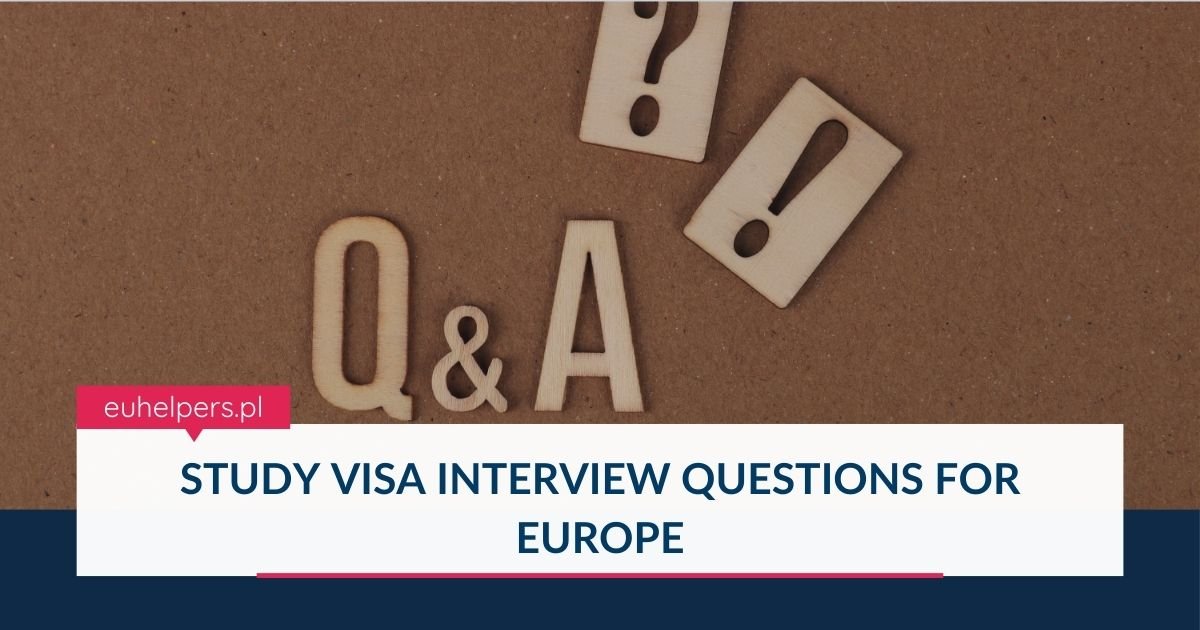Studying in Europe is a dream for many international students, but securing a study visa requires a thorough and well-prepared interview. Visa officers assess applicants based on their academic background, financial stability, language proficiency, and post-graduation plans. Below, we explore the common questions asked during a European study visa interview and offer key tips to help you succeed.
Key Areas of Focus in a Study Visa Interview
1. Academic Background
Your educational history plays a crucial role in the visa approval process. Expect questions such as:
- What is your previous educational qualification?
- Why did you choose this particular program?
- What are your academic strengths and weaknesses?
Visa officers want to see a clear connection between your past studies and your chosen program in Europe. Be prepared to explain why this program is the best fit for your academic and career goals.
2. University and Program Research
Demonstrating in-depth knowledge of your university and program shows your commitment to studying in Europe. Be ready to answer:
- Why did you choose this specific university?
- What do you know about the program curriculum?
- How does this program align with your career goals?
Research your university’s faculty, courses, and facilities to provide well-informed responses.
3. Financial Stability
A crucial part of the visa interview is proving that you can support yourself financially during your studies. Common questions include:
- How will you fund your studies in Europe?
- Do you have any scholarships or financial aid?
- Can you demonstrate sufficient funds to cover your expenses?
Ensure you have documented proof of financial support, such as bank statements, scholarship letters, or sponsorship affidavits.
4. Language Proficiency
Language skills can impact your ability to succeed in an academic setting. Visa officers may ask:
- How proficient are you in the language of instruction?
- What steps have you taken to improve your language skills?
If your course is in English, proof of English proficiency (e.g., IELTS or TOEFL) may be required. If studying in a non-English-speaking country, basic knowledge of the local language can be beneficial.
5. Post-Graduation Plans
Visa officers want to ensure you have clear career goals and intend to comply with visa regulations. You may be asked:
- What are your plans after completing your studies?
- Do you intend to return to your home country after graduation?
Highlight how your European education will benefit your career, whether in your home country or through legal employment opportunities abroad.
6. Immigration Concerns
To prevent visa misuse, officers assess your ties to your home country and past travel history. Possible questions include:
- Do you have any family or friends living in Europe?
- Have you ever applied for a European visa before?
- Why did you choose to study in Europe rather than your home country?
Showing strong personal, professional, or financial ties to your home country can strengthen your application.
Tips for a Successful Study Visa Interview
1. Be Well-Prepared
Thoroughly research your chosen university and program. Gather all required documents, including admission letters, financial proof, and language test results.
2. Be Confident and Articulate
Answer questions clearly and concisely, demonstrating enthusiasm for your studies. Avoid memorized responses—sincerity is key.
3. Be Honest
Always provide accurate information. Any false claims can lead to visa rejection and future travel restrictions.
4. Show Strong Ties to Your Home Country
Explain your reasons for returning home after graduation, whether it’s family obligations, career opportunities, or business plans.
A study visa interview is your opportunity to prove your genuine intent to study in Europe. By preparing thoroughly, answering confidently, and demonstrating your commitment to education, you can increase your chances of a successful visa approval. Good luck!

